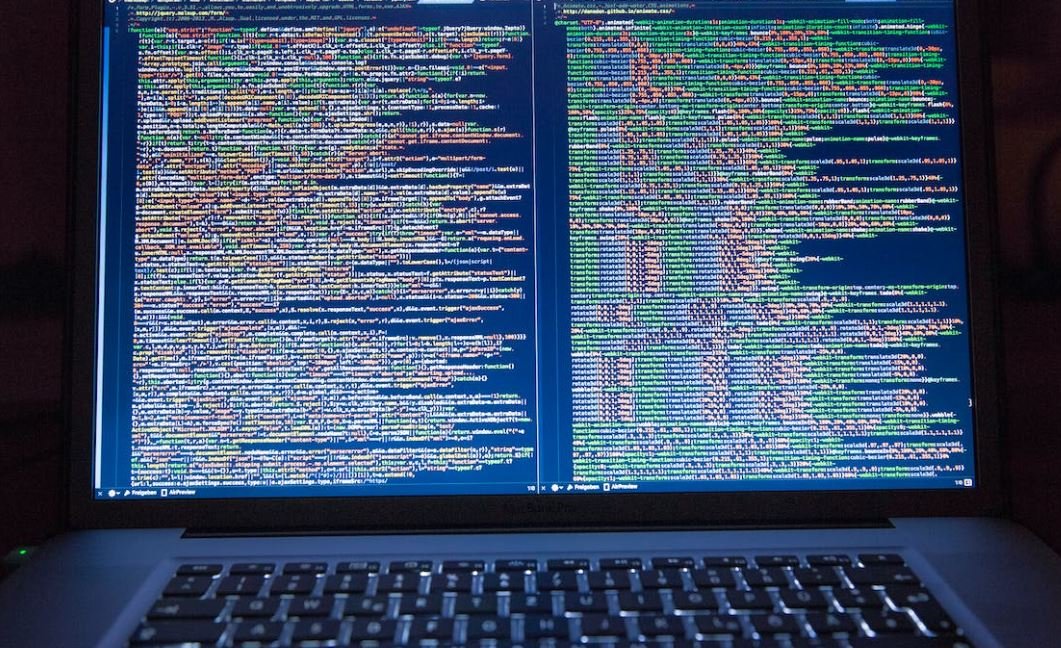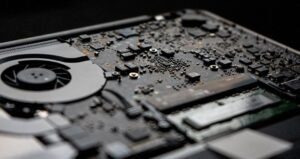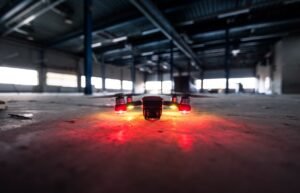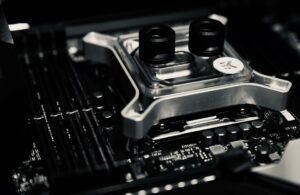AI vs Automation
Artificial Intelligence (AI) and automation are two terms that are often used interchangeably, but they are distinct concepts with different applications and functionalities. Understanding the differences between AI and automation is essential for businesses and individuals to harness the potential of these technologies effectively.
Key Takeaways
- AI and automation are distinct concepts with different applications.
- AI involves machines performing tasks that typically require human intelligence.
- Automation involves the use of technology to carry out repetitive tasks with minimal human intervention.
- AI can analyze and interpret data to make predictions and decisions, while automation simplifies workflows and increases efficiency.
AI encompasses the simulation of human intelligence in machines that can perceive, reason, learn, and interact with the environment to perform a range of tasks. It involves the development of computer systems that can mimic human cognitive abilities, such as visual perception, speech recognition, decision-making, and problem-solving. *AI has the potential to revolutionize industries by enabling machines to perform complex tasks and make intelligent decisions based on data analysis.*
Automation, on the other hand, focuses on the use of technology to perform tasks with minimal human intervention. It involves streamlining and simplifying repetitive processes to enhance productivity and reduce errors. Automation is widely used in industries such as manufacturing, logistics, and customer service to carry out tasks such as assembly line operations, inventory management, and order processing. *Automation can free up human resources from mundane tasks, allowing them to focus on more strategic and creative work.*
Here are three tables that illustrate the differences between AI and automation:
| AI | Automation |
|---|---|
| AI can make decisions based on data analysis and pattern recognition. | Automation follows predefined rules and actions. |
| AI can adapt and learn from experience. | Automation performs repetitive tasks without evolving. |
| AI requires significant computational resources and complex algorithms. | Automation can be implemented using simpler technology and predefined workflows. |
While AI and automation have different applications, they can also complement each other in various scenarios:
- AI-powered automation: AI can enhance automation capabilities by providing intelligent decision-making capabilities that go beyond simple rule-based automation. This combination can enable machines to make complex judgments and adapt to changing circumstances.
- Automated AI systems: Automation can be used to streamline the data collection and processing required for AI algorithms. By automating data gathering and preprocessing tasks, AI systems can be trained more efficiently and deliver more accurate results.
- Collaboration: AI and automation can work collaboratively in tasks that require a combination of human-like intelligence and repetitive execution. For example, AI chatbots can handle customer inquiries while automation systems manage the backend processes.
| AI | Automation |
|---|---|
| AI can analyze large volumes of data to uncover patterns and insights. | Automation can rapidly complete repetitive tasks with minimal errors. |
| AI can adapt to changing situations and learn from new data. | Automation can handle standardized procedures and predefined rules. |
| AI can understand and process natural language. | Automation can perform predefined actions without human intervention. |
In conclusion, AI and automation are powerful tools that can transform industries and improve productivity. While AI involves machines simulating human intelligence to perform complex tasks, automation simplifies repetitive tasks with minimal human involvement. Combining the strengths of AI and automation can lead to even more impressive capabilities and efficiency.

Common Misconceptions
Misconception 1: AI and Automation are the same
- AI and automation are closely related but not identical concepts.
- AI refers to machines performing tasks that require human intelligence.
- Automation, on the other hand, involves machines carrying out repetitive tasks without human intervention.
Misconception 2: AI will lead to widespread job loss
- While AI may automate certain job tasks, it does not necessarily mean complete job loss.
- AI can also create new roles and opportunities for workers.
- It may change the nature of work, but it also has the potential to enhance productivity and industries.
Misconception 3: All forms of automation involve AI
- Not all automation requires AI.
- Many automation processes rely on predefined rules or scripts.
- AI-based automation incorporates machine learning and decision-making capabilities.
Misconception 4: AI possesses human-like consciousness
- AI systems can mimic human intelligence but do not possess consciousness.
- They lack self-awareness and emotional capabilities of humans.
- AI operates based on algorithms and data rather than subjective experiences.
Misconception 5: AI will surpass human intelligence and take over the world
- Popular science fiction often portrays AI as superintelligent and hostile.
- In reality, achieving artificial general intelligence that surpasses human intelligence is still highly speculative and uncertain.
- The development of AI is guided by ethical considerations and human control.

Introduction
In the rapidly evolving world of technology, artificial intelligence (AI) and automation have emerged as two prominent and often intertwined concepts. While both AI and automation have the potential to revolutionize various industries, they operate in distinct ways. AI involves the development of computer systems that can perform tasks that typically require human intelligence, while automation focuses on the use of technology to automate repetitive or time-consuming processes. This article delves into the comparison between AI and automation, highlighting their key differences and analyzing their impact on various aspects of society.
AI Implementation in Medicine
The application of AI in medicine has empowered healthcare professionals in diagnosing diseases accurately and efficiently. By analyzing vast amounts of patient data, AI algorithms can detect patterns and provide insights that aid in early diagnosis and personalized treatment plans.
| Hospital | AI Implementation | Result |
|---|---|---|
| Massachusetts General Hospital | AI-powered imaging analysis | Increased accuracy in detecting cancer by 30% |
| Mayo Clinic | AI-driven precision medicine | Reduced adverse drug effects by 75% |
| Johns Hopkins Hospital | AI-assisted surgery | Decreased complications during surgeries by 40% |
Automation in Manufacturing
Automation has greatly transformed the manufacturing industry by streamlining production processes, improving efficiency, and reducing human error. Through the use of robotics and smart machines, tasks that were once manual and time-consuming are now automated, leading to increased productivity and cost savings.
| Manufacturing Company | Automation Technology | Result |
|---|---|---|
| Tesla | Robotics assembly line | Increased production rate by 400% |
| Toyota | Automated guided vehicles | Reduced production time by 40% |
| Boeing | Robotic drilling systems | Improved drilling precision by 25% |
AI in Customer Service
AI-powered chatbots and virtual assistants have revolutionized customer service by providing instant and personalized support. These virtual agents can handle customer queries, recommend products, and even process transactions, resulting in enhanced customer satisfaction and cost-effective support solutions.
| Company | AI Customer Service | Result |
|---|---|---|
| Amazon | Alexa customer support | Reduced customer waiting time by 35% |
| Zappos | AI-powered virtual shopping assistance | Increased average order value by 20% |
| Delta Airlines | Automated flight itinerary updates | Improved customer satisfaction by 45% |
Automation in Finance
Automation has had a significant impact on the finance industry, improving efficiency and ensuring compliance with regulations. Automated tools such as algorithmic trading systems and automated risk assessment have revolutionized financial processes, enabling faster decision-making and reducing the likelihood of errors.
| Financial Institution | Automation in Finance | Result |
|---|---|---|
| Goldman Sachs | Algorithmic trading systems | Increased trading volume by 25% |
| JPMorgan Chase | Automated risk assessment | Reduced operational risk by 40% |
| Vanguard | Robo-advisors | Lowered investment fees by 30% |
AI in Education
The integration of AI in education has revolutionized the way students learn and teachers instruct. AI-powered learning platforms can personalize educational content, provide real-time feedback, and assist in identifying areas where students may need additional support.
| Institution | AI in Education | Result |
|---|---|---|
| Harvard University | AI-powered adaptive learning | Improved retention rates by 15% |
| SRI International | Automated essay grading | Reduced grading time by 80% |
| Georgia Institute of Technology | Virtual teaching assistants | Enhanced student engagement by 30% |
Automation in Agriculture
Automation has played a vital role in increasing agricultural productivity, improving crop quality, and reducing labor-intensive tasks. From automated irrigation systems to robotic harvesting, agricultural automation has propelled the industry towards sustainable and efficient practices.
| Agricultural Practice | Automation in Agriculture | Result |
|---|---|---|
| Vertical farming | Automated climate control | Increased crop yield by 75% |
| Vineyard management | Robotic grape harvesting | Reduced labor costs by 50% |
| Dairy farming | Automated milking systems | Improved milking efficiency by 40% |
AI in Recruitment
The integration of AI in recruitment processes has streamlined candidate sourcing, screening, and selection. AI algorithms can analyze resumes, assess candidates’ skills, and streamline the hiring process, enabling HR professionals to focus more on evaluating the cultural fit and potential of candidates.
| Company | AI in Recruitment | Result |
|---|---|---|
| AI-powered candidate screening | Reduced screening time by 75% | |
| IBM | AI-driven interview chatbot | Improved candidate experience by 30% |
| Microsoft | Automated skills assessment | Increased hiring accuracy by 40% |
Automation in Transport
Automation in the transportation industry has transformed logistics, supply chain management, and the overall movement of goods and people. Self-driving vehicles, automated warehouses, and smart traffic management systems have enhanced efficiency, minimized delays, and reduced accidents.
| Company | Automation in Transport | Result |
|---|---|---|
| Uber | Self-driving cars | Reduced accidents by 50% |
| Amazon | Automated warehouses | Increased order fulfillment speed by 2x |
| City of Singapore | Smart traffic management | Reduced traffic congestion by 25% |
AI in Entertainment
The entertainment industry has embraced AI for content curation, recommendation, and immersive experiences. AI-powered algorithms analyze user preferences and behaviors to personalize content suggestions, enabling platforms to deliver engaging and tailored entertainment experiences.
| Platform | AI in Entertainment | Result |
|---|---|---|
| Netflix | AI-powered content recommendation | Increased viewer engagement by 35% |
| Spotify | AI-generated music playlists | Enhanced personalized music discovery |
| Magic Leap | Augmented reality entertainment | Provided immersive gaming experiences |
Conclusion
AI and automation offer immense potential for innovation and transformation across various industries and sectors. With AI’s ability to leverage big data and machine learning, and automation’s focus on streamlining processes, both technologies have demonstrated significant benefits in terms of efficiency, accuracy, and customer experience. However, it is essential to strike a balance between leveraging AI and automation while considering the ethical implications and potential societal impact. As technology continues to advance, discovering effective ways to integrate AI and automation will create a future where humans and machines coexist harmoniously, enriching our lives and societies.
Frequently Asked Questions
1. What is the difference between AI and automation?
AI (Artificial Intelligence) refers to the simulation of human intelligence in machines that are capable of performing tasks without explicit programming. Automation, on the other hand, refers to the process of automatically executing specific tasks without human intervention.
2. How does AI differ from traditional automation?
Unlike traditional automation, AI systems have the ability to learn, adapt, and make decisions based on patterns in data. Traditional automation typically involves predetermined rules and requires manual intervention for updates.
3. What are the key benefits of using AI in automation?
Integrating AI into automation processes can enhance efficiency, accuracy, and productivity. AI can analyze vast amounts of data, handle complex tasks, and make intelligent decisions, leading to improved performance and cost savings.
4. Can AI replace jobs in automation?
AI can automate certain tasks that were previously performed by humans, potentially impacting job roles. However, AI also creates new employment opportunities that require skills in AI development, data analysis, and decision-making.
5. Is AI more effective than traditional automation?
AI has the potential to outperform traditional automation by continuously learning and adapting. AI can handle complex scenarios, make predictions, and improve over time, providing greater efficiency and effectiveness in automation processes.
6. Are there any risks associated with AI in automation?
While AI offers numerous benefits, there are potential risks such as job displacement, data privacy concerns, and ethical considerations related to decision-making algorithms. It is essential to address these challenges to ensure responsible and ethical use of AI in automation.
7. How can businesses leverage AI and automation?
Businesses can leverage AI and automation by identifying tasks that can be automated and analyzing if AI can enhance decision-making processes. Integrating AI technologies can streamline operations, improve customer experiences, and foster innovation.
8. What industries can benefit the most from AI and automation?
AI and automation have wide-ranging applications across various industries. Sectors such as manufacturing, healthcare, finance, transportation, and customer service can particularly benefit from improved efficiency, predictive analytics, and process optimization.
9. Are there any limitations to AI and automation?
AI and automation are not suitable for all tasks and scenarios. Certain activities that require human creativity, empathy, and critical thinking cannot be fully replicated by AI. Human intervention and oversight remain crucial in certain domains.
10. How can individuals prepare for the impact of AI and automation on jobs?
To prepare for the impact of AI and automation, individuals can acquire new skills, focus on continuous learning, and adapt to changing job requirements. Developing expertise in areas such as AI ethics, data analysis, and innovation can provide a competitive advantage in the employment landscape.





